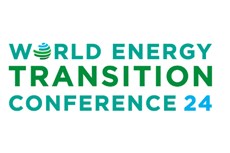What could an accelerated energy transition mean for the global gas market?
Published by Callum O'Reilly,
Senior Editor
Hydrocarbon Engineering,
Global gas markets have weathered significant change this year. But beyond the coronavirus pandemic, the gas sector faces even greater change, meeting the challenge as the energy transition gathers pace.
Speaking at the Gastech Virtual Summit, Stephen O’Rourke, Director, from Wood Mackenzie’s global gas team, looked at the potential impact an accelerated energy transition towards a 2°C world could have on the market, its main players and their investments.
O’Rourke told delegates: “WoodMac anticipates that global gas demand will grow at an average rate of 1.6% over the next 20 years. But as companies and governments are pivoting to a net-zero emissions world, gas demand growth could be at risk.
“In a 2°C world, gas would be more resilient than other hydrocarbons, but lower gas demand and prices will put suppliers under pressure. But the investment needed by companies to make a return in such an environment differs markedly by type of gas and region.”
He added that in a 2°C world there is consensus that the mature markets of Europe and North America will see the largest declines in gas demand growth, as renewable penetration is well under way, reliance on coal is already diminishing, and new low-zero carbon technologies, including heat pumps, biomethane and hydrogen, are being adopted.
“But gas could retain a key role for carbon dioxide reduction and air quality improvements in Asian markets. Coal still dominates in Asia, accounting for around 50% of the energy mix. In contrast, gas use - at 11% region-wide - is less than half that in Europe and the US.
“An accelerated energy transition towards a 2°C world would see gas and LNG demand in Asia to continue growing, albeit possibly at a lower pace than our base case view, particularly post 2030 as use of new technologies will put pressure on gas. This has major implications for gas market suppliers and their investment strategy,” he said.
So how could the gas market change in an accelerated energy transition and how might the different regional dynamics affect the optimum gas investment?
O’Rourke said: “In the US – the world’s biggest gas market – a decline in gas demand would be partially offset by a decline in the US Lower 48 oil production and cheap associated gas. Under an accelerated energy transition scenario oil prices will remain subdued, putting pressure on tight oil producers.
“Reduced associated gas would offsets the drop in US gas demand (and indeed LNG exports) increasing the reliance on dry gas and supporting Henry Hub price.
“Europe’s move to a low-carbon economy, spearheaded by the EU Green Deal, would squeeze gas. While Russia would still be a major supplier, the regulatory environment would likely keep its market share to under 40%.
“Despite a lower European gas demand outlook, there is still space for other supply, including LNG. While we’ve yet to see details, a carbon border adjustment tax on imported gas and LNG could affect the supply mix and the price of gas entering the European market.”
O’Rourke told delegates that the shape of the energy transition in Asia will dictate the attractiveness of new LNG investments for suppliers globally.
“Only the most competitive new projects will win market share,” he said. “Low-cost developments in Russia and Qatar would be competitive even in a high carbon price environment. But new US LNG projects might also be required to meet demand. The cost of US LNG, plus additional carbon costs, could remain the marginal source of supply and set the global price.”
Read the article online at: https://www.hydrocarbonengineering.com/gas-processing/11092020/what-could-an-accelerated-energy-transition-mean-for-the-global-gas-market/
You might also like
Viridi Energy signs 20-year agreement with Énergir
Viridi Energy, a renewable natural gas (RNG) platform, has signed a 20-year offtake agreement with Énergir, L.P.


